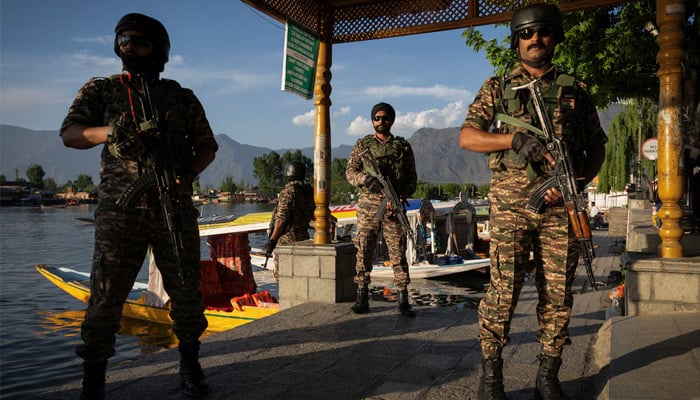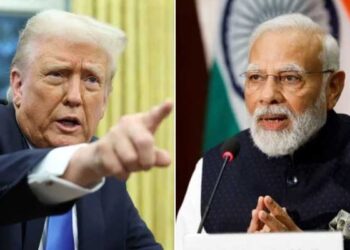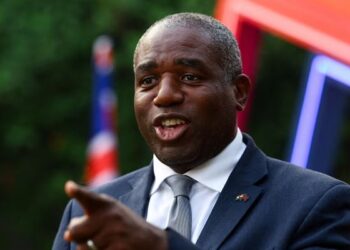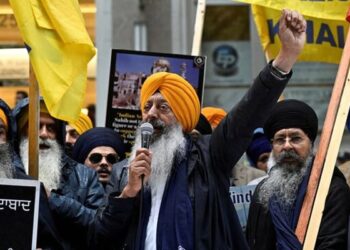- Concerns grow over potential clashes between India and Pakistan.
- Indian PM Modi rushes to engage with global leaders.
- Modi vows to enforce strict penalties and dismantle terrorist hideouts.
As hostilities with Pakistan escalate following a deadly shooting in Indian-occupied Jammu and Kashmir (IIOJK), India is actively pursuing international support—not to de-escalate tensions, but to solidify its rationale for possible military intervention.
Though direct evidence implicating Pakistan in the attack remains scarce, the potential for an explosive confrontation between the two nuclear powers is raising alarm, according to a report from the New York Times.
The NYT highlights that Indian Prime Minister Narendra Modi has rapidly reached out to numerous world leaders following last week’s violent incident. Additionally, diplomats from over 100 foreign missions have been called to the Ministry of External Affairs for urgent briefings.
However, this initiative appears more focused on shaping a case for military action against Pakistan, rather than fostering a peaceful resolution. Modi, without directly naming Pakistan, asserted in a Thursday address that severe consequences await and vowed to eradicate terrorist strongholds.
In the contested region, Indian forces have initiated a broad crackdown, apprehending hundreds as they seek the attackers.
Earlier, India announced plans to disrupt water flow to Pakistan, significantly impacting its irrigation systems reliant on upstream rivers. This escalation also included the immediate expulsion of staff from Pakistan’s diplomatic mission and Pakistani visitors in India.
In response, Islamabad has declared its intention to suspend participation in bilateral agreements, including those affecting the “line of control” that has demarcated their disputed territories during a fragile ceasefire.
Anti-Muslim sentiments are surging in India, particularly targeting Kashmiri students in other Indian cities, many of whom now feel pressured to return home due to harassment.
Five days following the assault that claimed 26 civilian lives, India has yet to officially attribute responsibility to any group and has presented minimal evidence linking Pakistan to the act. The Pakistani government has categorically denied any involvement.
During diplomat briefings, Indian officials discussed Pakistan’s previous ties to “terrorist” groups targeting India, asserting that the investigation remains ongoing. They mentioned vague references to technical intelligence allegedly linking the assailants to Pakistan, including facial recognition data.
The absence of solid evidence suggests one of two scenarios, analysts believe: either India is still gathering information before acting against Pakistan or feels empowered to take unilateral action without needing justification amid global distractions.
A military conflict between India and Pakistan, both armed with nuclear weapons, poses dire risks of rapid escalation. India, however, faces minimal external pressure to temper its responses and has increasingly displayed assertiveness as its diplomatic and economic influence has grown.
The governments of Iran and Saudi Arabia have engaged with both nations, and Iran’s foreign minister has publicly offered to mediate. The UN and EU have both advocated for restraint and dialogue, but major powers, including the United States, are preoccupied with other issues. Analysts suggest India is interpreting many countries’ endorsements of its pursuit of justice as tacit approval for any actions it may undertake.
Officials from the Trump administration have expressed strong support for India’s fight against terrorism. President Trump has indicated a friendly stance toward both India and Pakistan, acknowledging their long-standing tensions.
However, it remains uncertain how involved the U.S. will become in the current situation. Three months into his presidency, Trump has yet to appoint an ambassador to India, which reflects the lower priority of South Asia in his agenda.
Even if the U.S. or other entities attempted to intervene, their influence might be limited. India and Pakistan have a history of conflicts over Kashmir.
Initial reactions from Washington mirror the approach taken during the last significant flare-up in 2019, where support for India was expressed after an attack that resulted in multiple Indian security fatalities.
At that time, the Trump administration reinforced its diplomatic pressure for restraint only after India had already struck Pakistan in a cross-border airstrike.
The legitimacy of the strike was disputed. Following India’s retaliatory efforts, clashes ensued, resulting in the downing of an Indian aircraft and the capture of its pilot.
This time, signals indicate a desire for India to execute a significant response, while Pakistan asserts it will match and exceed any Indian action.
“The cycle of retaliation could escalate quickly, with both nations overestimating their control over the situation,” observed Markey.
In contrast to the 2019 attack, the claims of responsibility for last week’s incident remain unclear, with uncertainty surrounding the number of perpetrators. This ambiguity may help explain why India has largely cited Pakistan’s historical patterns of behavior, as reported.
Such an approach, especially before presenting clear evidence even in private diplomatic conversations, raises questions about whether it’s prudent to engage in conflict with a nuclear-armed neighbor based solely on past actions.






